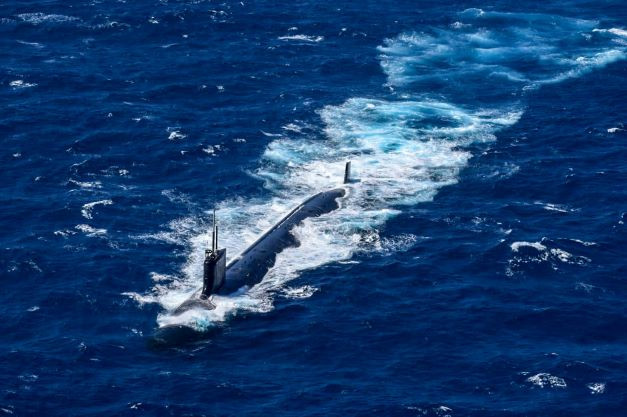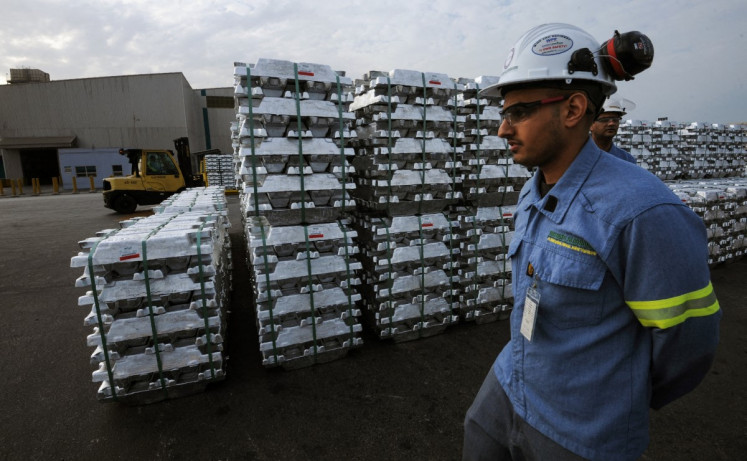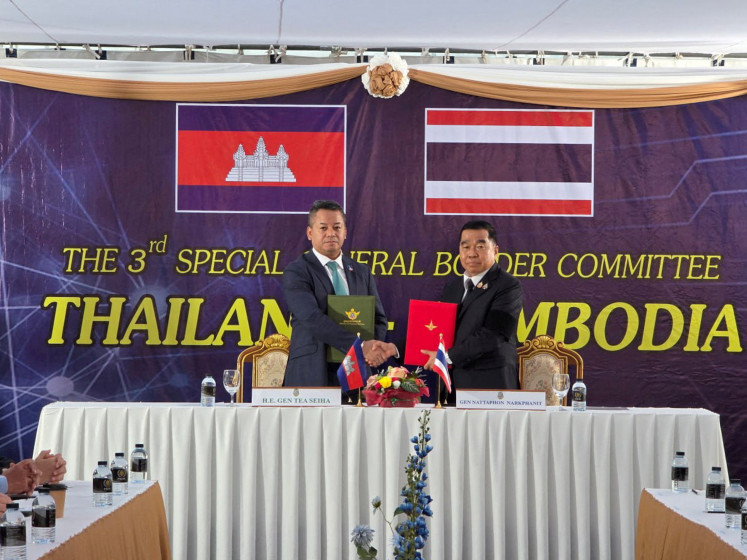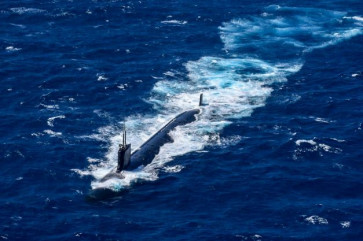Popular Reads
Top Results
Can't find what you're looking for?
View all search resultsPopular Reads
Top Results
Can't find what you're looking for?
View all search resultsAUKUS a year on: Nuclear non-proliferation regime at risk?
The failure to provide an effective control mechanism for AUKUS will also mean there is the alarming possibility that other NNWS may gain access to nuclear material without being subject to IAEA safeguards.
Change text size
Gift Premium Articles
to Anyone
S
ince its inception in 2021, the enhanced trilateral security partnership among Australia, the United Kingdom and the United States (AUKUS) has led to international controversy. The main concern over such a strategic partnership is about the provision of nuclear-powered submarine capability to Australia.
On Sept. 23, the US, the UK and Australia released a joint leaders’ statement to mark one year of AUKUS. The statement reiterated the commitment of Australia that it does not seek and will not acquire nuclear weapons. It also reasserted that the US and the UK are fully committed to establishing an approach to sharing nuclear naval propulsion (NNP) technology with Australia that meets the highest non-proliferation standard.
Yet, the looming challenge is how to gain the confidence of the international community that AUKUS will work transparently with the International Atomic Energy Agency (IAEA) toward such an approach. It should be an effective mechanism that will keep the nuclear non-proliferation regime uncompromised.
Within this context, Indonesia successfully mainstreamed the discussion of NNP in the 10th Review Conference of the Nuclear Non-Proliferation Treaty (NPT) taking place in New York on Aug. 1-26. Through a submission of an eloquent working paper, Indonesia highlighted its concerns over the use and sharing of nuclear material and technology for military purposes as it would present a unique case that deserves serious attention.
The Indonesian paper is essentially about NNP in general. It neither specifically names a certain program nor refers to specific countries. The paper clearly underscored “any” cooperation involving the transfer of nuclear material and technology for military purposes from nuclear-weapon states to any non-nuclear-weapon states (NNWS) as increasing the associated risks of proliferation.
The paper is not intended to single out AUKUS or to spotlight its compliance with the spirit of non-proliferation objectives. It just points out that the access to such nuclear-powered submarine capability will certainly set a dangerous precedent for other NNWS to follow.
It also reveals a potential legal loophole within the NPT regime. Such a gap would be apparent in the juxtaposition between the NPT’s prohibition on NNWS from acquiring nuclear weapons and the prohibition on transferring fissionable material to a NNWS without being subject to IAEA safeguards. The approach taken by AUKUS will test the limits of an already fragile non-proliferation regime.



















